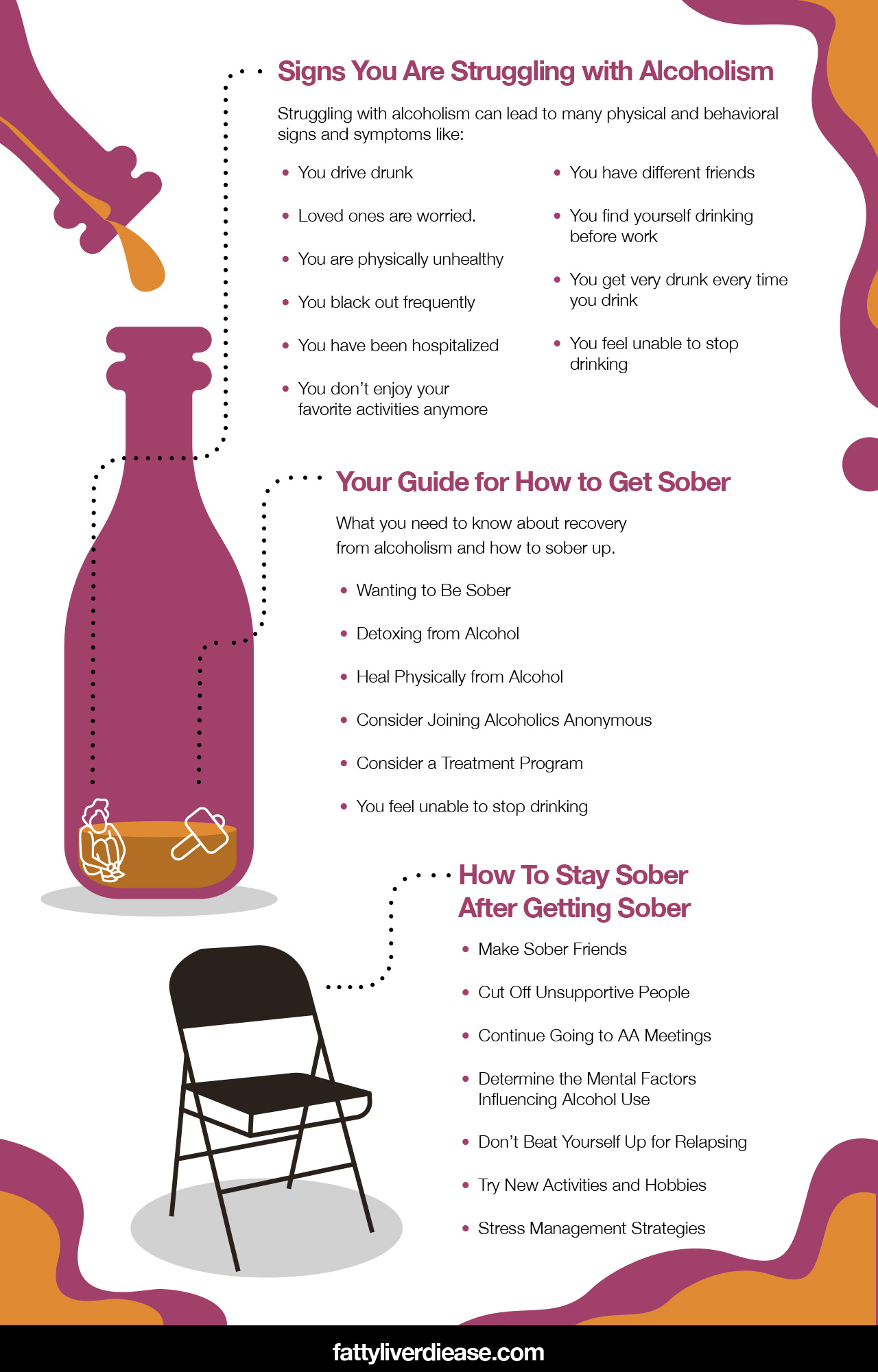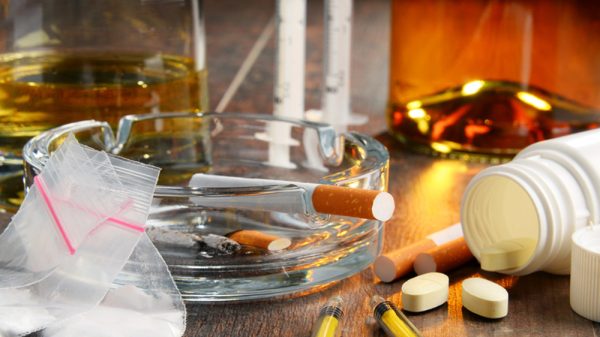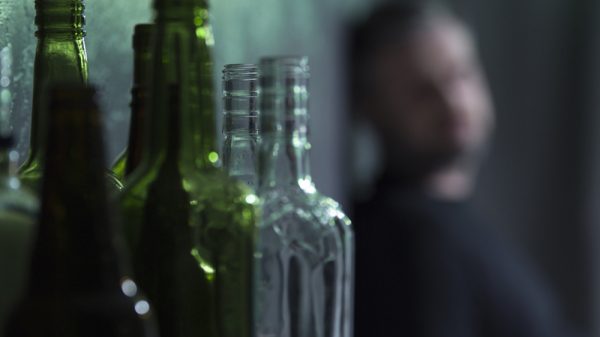If you are struggling with alcoholism, you are not alone. Millions of Americans are living with an alcohol abuse disorder, and many are seeking treatment and recovery. If you are dependent on alcohol, recovery may seem worlds away from your current life. However, recovery is always possible. If you’re not sure where to start, then you’ve come to the right place.
Keep reading for your guide on how to get sober.
A Quick Rundown on Alcohol: How Does It Affect the Body and Mind?
What even is alcohol, and how do we get addicted to it? When a beverage contains alcohol, this means that the drink contains a compound called ethanol. Ethanol is a central nervous system depressant, meaning it slows down communication between the brain and the nerves throughout the body. The liver is able to process alcohol at a rate of about 1 drink per hour. When you drink in large quantities and at a faster pace, the liver is unable to keep up with the amount of alcohol you’re drinking. Alcohol then enters the bloodstream as it waits to be processed. Alcohol in the bloodstream increases your blood alcohol concentration (BAC). The higher your BAC is, the more drunk you will feel.
The effects of alcohol include euphoria, lowered inhibitions, and feeling generally relaxed. These positive effects are what draws humans to alcohol in the first place. However, these effects also lead to alcohol abuse.
Chronic, long-term alcohol abuse can cause a variety of health problems. The liver is especially vulnerable to the effects of alcohol. The liver is the processing plant of the body and is responsible for breaking down and detoxifying harmful chemicals, including ethanol. Though the liver can handle small amounts of alcohol, drinking lots of alcohol can cause damage and inflammation to liver tissue. Eventually, excessive drinking can lead to liver conditions like fatty liver disease, fibrosis, and liver cirrhosis. Moreover, chronic drinking can cause damage to the brain and heart.
Alcoholism is a tough addiction to combat because casual drinking is such an acceptable component of the cultural fabric in our society. Even binge drinking – which is detrimental to overall health – has become normalized.
Signs You Are Struggling with Alcoholism
Struggling with alcoholism can also lead to many physical and behavioral signs and symptoms. Here are a few signs you may have a drinking problem:
- You drive drunk. If you are drunk driving or have received a DUI, this is a good indicator that you have an alcohol use issue.
- Loved ones are worried. If your friends and family have expressed concern about your drinking habits, this is a sign that you may need to slow down on your drinking. Trusted friends and family members generally should have your best interests in mind, and if they are worried, this is a good sign that your drinking has surpassed the healthy limit.
- You are physically unhealthy. If you have been drinking in excess, alcohol impedes the normal absorption of nutrients. As a result, you become malnourished over time. You may lose weight and feel weak. If your liver has been affected, you may notice bruising and a substantial loss in muscle mass.
- You black out frequently. If you have trouble remembering large portions of your days or evenings due to alcohol, this is a sign that you are drinking too much and are struggling with a substance use issue.
- You have been hospitalized. If you become unresponsive and are vomiting, this is a sign that your blood alcohol level is too high and you require hospitalization. Hospitalization for alcohol consumption is a sign that you may have an alcohol use problem.
- You don’t enjoy your favorite activities anymore. Maybe you used to be an avid hiker, painter, or yoga enthusiast, but it’s been months since you’ve engaged in your favorite activities. You may notice that all of your activities center around alcohol consumption.
- You have different friends. As your drinking progresses, maybe you’ve found that you spend less and less time with your friends. The people you spend the most time with are people who also drink.
- You find yourself drinking before work. Maybe at first, you were grabbing a drink after work with friends or enjoying drinks on a night out. As your drinking progressed, maybe you began to drink earlier in the day, including before work.
- You get very drunk every time you drink. When you drink, you drink a large amount of alcohol that drives up your blood alcohol concentration. You may lose your physical coordination and ability to speak coherently. With very high blood alcohol levels, you may start vomiting and lose consciousness. Not only is this dangerous, but it’s also an indicator that you are struggling with an alcohol abuse disorder.
- You feel unable to stop drinking. When you start drinking, you may feel unable to control the amount of alcohol you consume. In general, it may be hard to imagine your life without alcohol.
If these warning signs apply to you, then it may be time to seek recovery. If you feel like you are struggling with alcoholism, then you’ve come to the right place. Read on to find out strategies and tips for how to get sober.

Your Guide for How to Get Sober
Recovery from alcohol addiction is a long-term process, and every recovery journey is unique to each individual. Recovery occurs as a step-by-step process. Here we go through what you need to know about recovery from alcoholism and how to sober up. Keep in mind that many of these guidelines are applicable to other substance abuse issues as well.
1. Wanting to Be Sober
The first step in alcohol recovery is the goal to be sober. If you don’t want to get sober, then you will continue drinking. If you’re already reading through this article, that’s a clear sign that you are driven to break your addiction to alcohol and seek recovery.
2. Detoxing from Alcohol
When you’re striving to become clean, the first step is physically detoxing from alcohol. This involves breaking the biological reliance that your body has on alcohol. Most likely, at this point, you feel like you need a drink to feel “normal.”
When you break your addiction to alcohol, the body has to go through a nasty withdrawal process. Many times, this process is done under medical supervision, in a clinic or a hospital. This is because in serious cases, alcohol withdrawal can be life-threatening. During the withdrawal process, you will experience uncomfortable withdrawal symptoms such as sweating, shaking, nausea, intense anxiety, and rapid heartbeat. Severe alcohol withdrawal is described as delirium tremens, which results in hallucinations and seizures.
3. Heal Physically from Alcohol
Even after you’ve gone through the week-long detox process to break the physical addiction to alcohol, your body still needs to heal from the damage that alcohol has inflicted on your organ systems. In a nutshell, alcohol causes oxidative damage and inflammation in body tissues, while simultaneously inhibiting the normal absorption of critical nutrients that the body needs. In particular, alcohol abuse is very hard on the liver. Over time, the chronic and excessive intake of alcohol causes fatty liver disease, which is the accumulation of fat cells in liver tissue. With continued drinking, fatty liver disease can progress to liver fibrosis, liver cirrhosis, and even liver failure.
The good news is that the body can often heal from alcohol-induced damage after you quit drinking. If you have alcoholic fatty liver disease, it’s important to eliminate alcohol intake and eat a balanced diet that includes antioxidants from fruits and veggies, essential amino acids from high-quality protein, and fiber from whole grains. Following a healthy diet that includes all of these elements will nourish your body and help your liver repair from alcohol-induced damage.
4. Consider Joining Alcoholics Anonymous
Alcoholics Anonymous (AA) is a nation-wide program that connects recovering alcoholics through in-person meetings and online platforms. AA is a support group that provides guidance for living sober that is structured around a 12-step program that many recovering addicts find helpful.
5. Consider a Treatment Program
Addiction treatment and addiction recovery are tough, especially when you’re doing it alone. Entering a treatment program can provide a structure for the initial part of your recovery journey. An inpatient treatment facility can be particularly helpful by removing you from your environment and creating distance between you and drinking triggers. An outpatient treatment program can also help provide structure by holding you accountable for appointments with physicians, mental health specialists, and other healthcare professionals.
Staying Sober After Getting Sober
Most addicts will tell you that getting sober is half the battle. Staying sober is the other half. Here are a few tips to specifically support staying sober after you’ve gone through the initial process of detoxing and getting sober.
1. Make Sober Friends
Though millions of Americans drink, there are also millions of Americans who don’t drink. It’s just a matter of finding them. Making sober friends is crucial for maintaining your sobriety. Surrounding yourself with others who have had similar experiences creates a supportive, team-oriented environment. Creating your support system can help you maintain a life that revolves around sobriety.
2. Cut Off Unsupportive People
Though it may seem harsh to drop friends who aren’t supportive, it’s imperative that you prioritize yourself during your recovery process. Staying in contact with individuals you used to drink with will only make recovery more difficult, and relapse more likely. Instead, stay connected to those who support your new sober way of living.
3. Continue Going to AA Meetings
Addiction recovery and addiction treatment is often a life-long journey. Although AA meetings are helpful early in your recovery process, keeping your support group strong and going to AA meetings regularly can help you maintain sobriety over the longterm. Having a core backbone of peers and mentors on the same journey can help prevent relapse.
4. Determine the Mental Factors Influencing Alcohol Use
Many times, psychological factors underlie the physical urge to drink. These factors may include an undiagnosed mental health disorder, trauma, or other forms of psychological pain. In many cases, alcohol may serve as a numbing elixir that seems to temporarily get rid of problems. Determining the psychological factors driving your desire to drink will be essential for fighting cravings.
Therapy is an invaluable resource for managing the psychological factors associated with addiction.
5. Don’t Beat Yourself Up for Relapsing
Relapse is common during the addiction recovery journey. Addiction has very real biochemical and psychological reasons for relapse. If you relapse, there are things you can do. Reach out as soon as possible. Call up a mentor from AA, your sober friends, or a trusted loved one. Surrounding yourself with supportive individuals can help you recover from the relapse and continue your sobriety journey.
6. Try New Activities and Hobbies
With drinking no longer a part of your daily routine, you will likely have a little more time on your hands to devote to new activities and hobbies. Staying busy and trying new things is crucial for keeping your mind occupied and decreasing the risk of relapsing. A few examples of new activities include rock climbing, playing sports, and cooking.
7. Stress Management Strategies
Stress is a common trigger for many recovering addicts. Self-medicating anxiety with alcohol may have even been a large reason for drinking in the first place. Either way, managing stress after you become sober is key to maintaining your sobriety.
Activities like yoga, meditation, and deep breathing are critical for warding off anxious thoughts and helping you recenter.
How to Get Sober: The Bottom Line
The decision to get sober is a difficult one, but an admirable one. Deciding to get sober will give you your life back. All alcoholics in recovery have had to take the first steps that you’re taking, like detoxing and going through a treatment program. Having a core group of sober friends, going to regular AA or support group meetings, getting mental health counseling, and managing stress are key to maintaining your sobriety in the long run.























